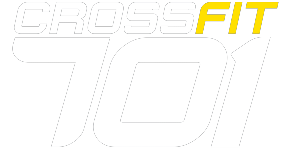Different Types of Protein Powders Explained
This is informative in nature - it should not take the place of advice and/or supervision from a medical professional.
Protein Protein Protein! Protein is an essential macronutrient, made up of amino acids, that is vital for us to function and is found in pretty much every tissue in our body. Protein helps build muscle, curb hunger, maintain weight, and speed recovery.
As individuals begin their fitness journey or begin to focus on nutrition, focusing on whole-food nutritional habits is priority, meaning eating quality meats, fruits, & veggies. Eating enough protein can be difficult at times though, like post workout, if you are short on time, or if your nutritional needs are higher because you are an athlete (it’s hard to eat enough sometimes!) - this is where protein powder comes in handy.
There are plenty of options out there, and most originate from familiar foods such as dairy, eggs, and plants.
Whey:
Derived from cow’s milk. This product contains all nine essential amino acids, making it a complete protein. Whey protein builds lean muscle, is absorbed fast, and is absorbed easily. Consume within 30 minutes of exercise, best if combined with some form of carbs.
Whey Concentrate- generally regarded as the lowest quality option due to its limited refinement process. These contain up to 80% pure protein but most tend to be lower, with the remainder of the nutritional composition coming from fat and carbs.
Whey Isolate- These products need to contain at least 90% protein by weight. The extensive refinement and concentrated purity makes whey isolate the most widely used protein source for athletes. These typically have a lower calorie content, reduced carbohydrates, and are lower in lactose.
Whey Hydrolysate- This product has gone through hydrolysis in order for the protein to be broken down and metabolized much easier. While this product is superior and less allergenic when compared to other forms of whey, it is typically much more expensive.
Casein:
Derived from cow’s milk. This protein has a slow absorption rate and can build muscle while you sleep. Consume 1-2 hours before bed. Add to recipes for additional protein. Not to be consumed for post workout fuel.
Tip: combine with enough almond milk or water to make a protein pudding.
Plant based:
Derived from a variety of plants such as pea, hemp, rice, seeds, and soy. Most of these would be considered “incomplete”, so try to find one with multiple sources, such as both pea and hemp, or pure soy, which is one of the only complete plant sources. Consume within 30 minutes of exercise and throughout the day to increase protein in diet.
Tip: add to smoothies, protein pancakes, and/or oatmeal.
Egg Protein:
Derived from eggs, is highly digestible and an excellent source of amino acids. Has a slightly lower amino acid profile then whey, but typically has less sugar, additives, and calories. This source may be harder to find and will cost more than other options. Great to try if you have a milk allergy or want to try something new!
Collagen:
Most collagen supplements come from the bones, skin, and connective tissue of animals, including cattle, fish, horses, pigs, or rabbits. Collagen reduces inflammation, lubricates joints, strengthens hair and nails, improves skin, and restores intestinal lining. Consuming consistently is key, anytime of day, and can be in the form of powder or pill. Not to be used as post workout fuel.
Tips: add to morning coffee, oatmeal, and other recipes - available in non-flavored and flavored options.
___
Utilizing protein powder is not required but it can be extremely beneficial for meeting nutritional needs. Ideally you want a protein powder that contains all of the essential amino acids, making it a complete protein. Pay attention to calorie content and look for a product with a good amount of protein (20-30g/serving) without the extra additives.
You might need to try a couple different options as taste and digestibility will vary depending on the individual. The real struggle is finding one that tastes good to YOU and makes you feel GOOD!
If you have questions or are unsure about your protein consumption, I am here to help!
